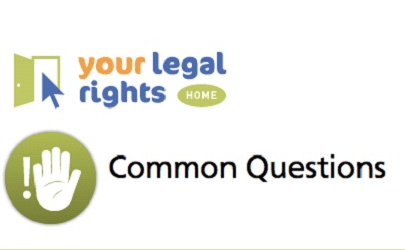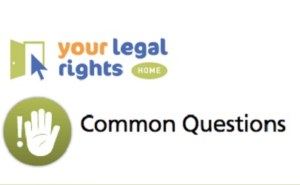CLEO’s Common Questions 2: Consumer Protection Act and Unfair Practices
Original Source: “Common Questions: Unfair practices: When sellers break the rules” by Community Legal Education Ontario (CLEO)
http://yourlegalrights.on.ca/common-question/consumer-i-think-i-have-been-victim-unfair-practices-what-can-i-do

QUESTION:
As a consumer, I think I have been the victim of unfair practices. What can I do?
ANSWER:
Ontario’s Consumer Protection Act has many detailed rules for different types of consumer transactions. But one general rule applies to almost all of them: Sellers are not allowed to use “unfair practices” to get people to buy their goods or services.
When does the rule apply?
The Consumer Protection Act applies only to “consumer agreements”. This means that the consumer must be buying something for personal use, not to use in a business.
The Act applies to both:
• goods, for example, household items, furniture, appliances, electronics, or clothing
• services, for example, cell phone or internet service, fitness club membership, or car repairs
It applies no matter where the sale takes place, for example, at home, in a store, over the phone, on a website, or by mail or e-mail. But both of the following must be true:
• the buyer or the seller is in Ontario when the sale happens
• the total amount charged is more than $50
Some kinds of services are not covered by the Act because they are covered by other laws. Examples are financial services, apartment rentals, and professional services like lawyers, doctors, and dentists.
What are unfair practices?
The unfair practices that are banned by the Consumer Protection Act fall into two main categories. One involves making false or misleading statements. Here are some examples:
• saying that the product or service is of better quality than it really is
• saying it is only available for a limited time if that’s not true
• telling the consumer they’re getting a special price when it’s really not very different from other sellers’ prices
The other kind of unfair practice includes various kinds of extreme and unfair sales tactics. For example, sellers must not:
• take advantage of a consumer’s language difficulty, lack of knowledge, or disability
• charge far more than what is reasonable
• pressure someone to buy something that the seller knows they cannot afford
• use extremely one-sided contracts
• use fear or threats
What can a victim of unfair practices do?
When a seller uses any unfair practice, the buyer has the right to cancel the agreement within one year.
And if the buyer cancels, they have the right to a full refund, except for the value of:
• any goods that they already consumed
• services they have used
The Ministry of Consumer Services website has sample cancellation letters.
If the seller refuses to refund the money, or breaks other rules in the Consumer Protection Act, the buyer can complain to the Ministry of Consumer Services. There is more information and a complaint form on the Ministry website.
Consumers who have been victims of unfair practices or other violations of the Consumer Protection Act can also sue the sellers in court.
If they are claiming $25,000 or less, consumers would file their claim in Small Claims Court. They must start the claim within two years after they knew about the problem.
There is information about Small Claims Court on the Ministry of the Attorney General website: http://www.attorneygeneral.jus.gov.on.ca/english/courts/scc/
RELATED RESOURCE:
Unfair practices: When sellers break the rules
RESOURCE NOTES:
For more information on your rights you will find a range of resources in CLEO’s Consumer Series.
**This article gives general legal information. It is not a substitute for getting legal advice about a particular situation.


